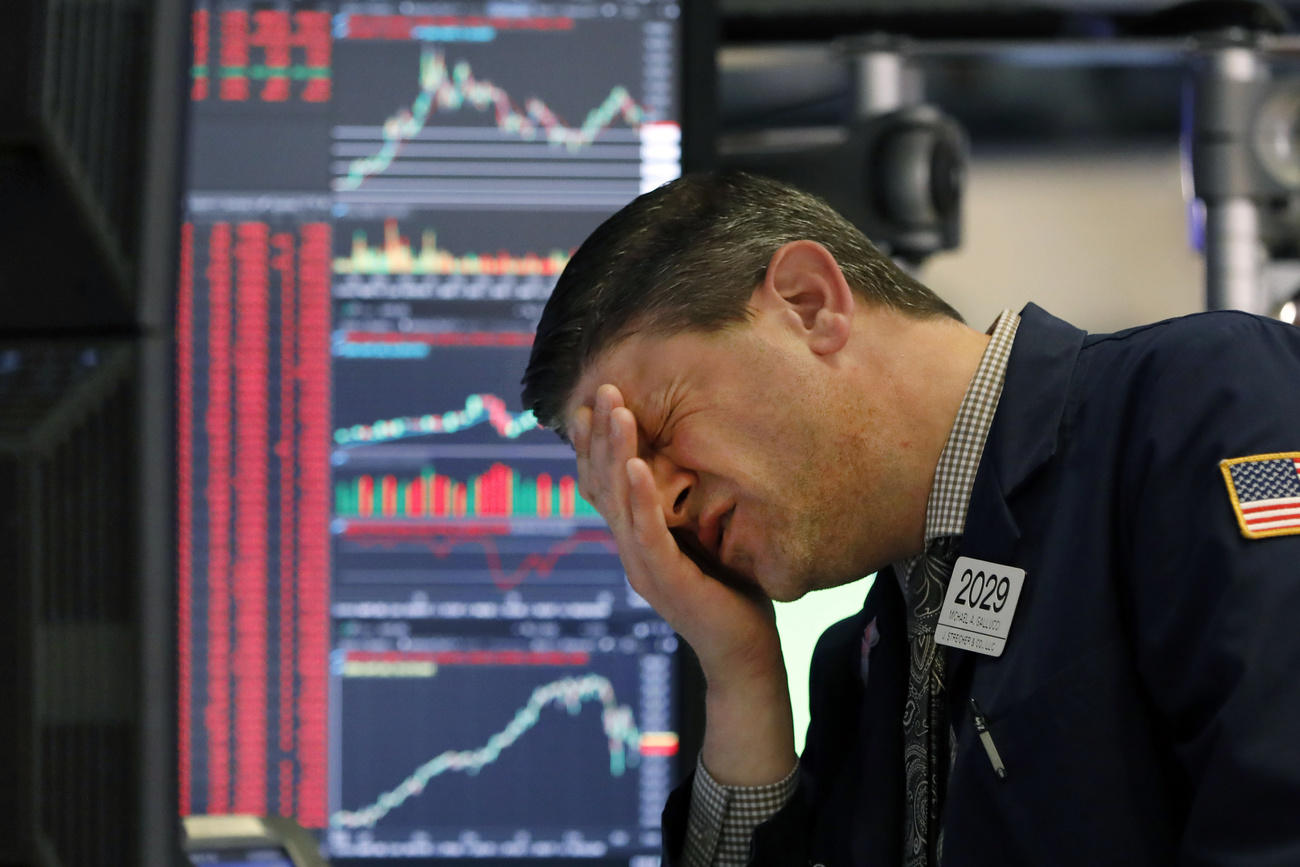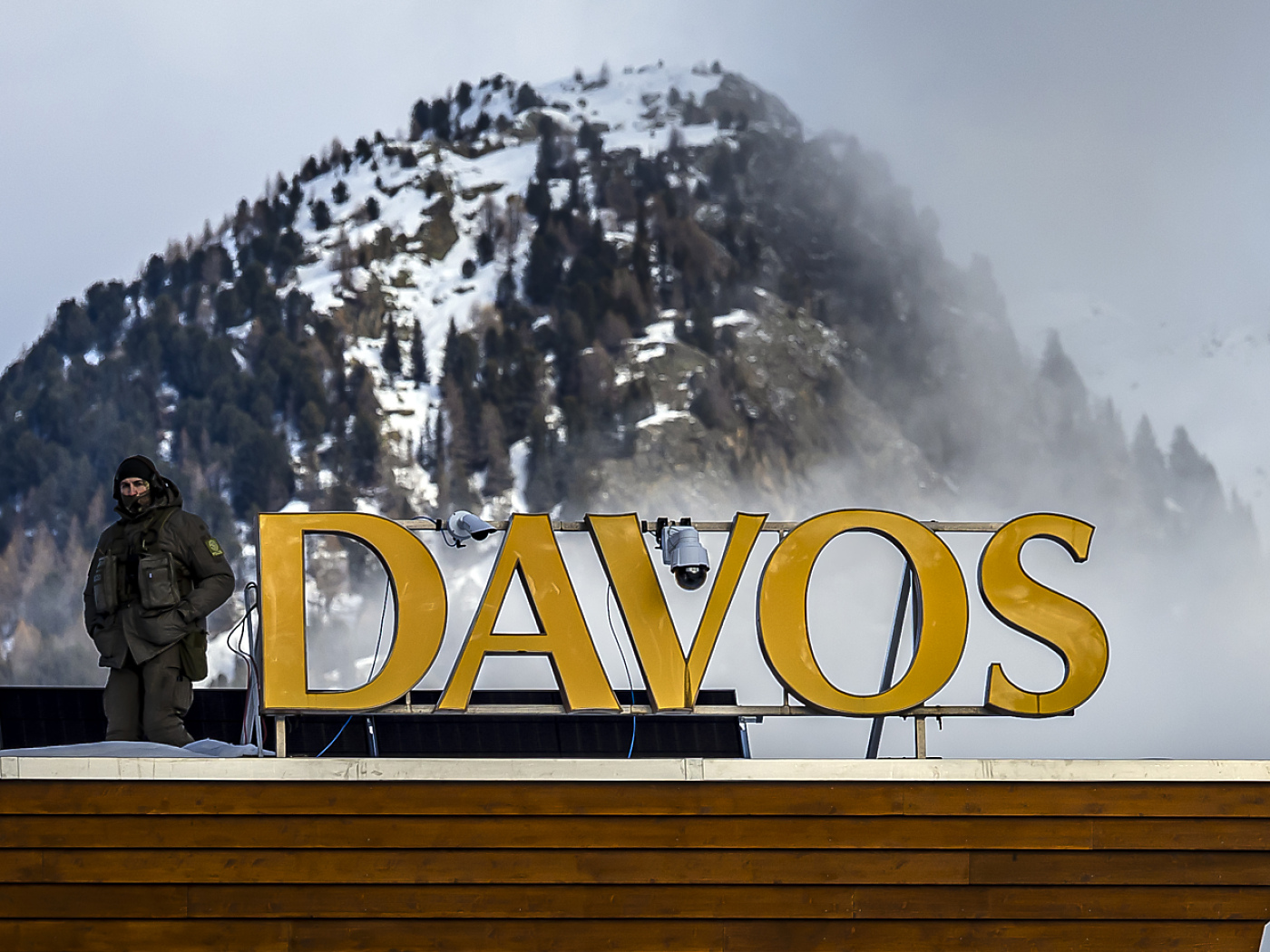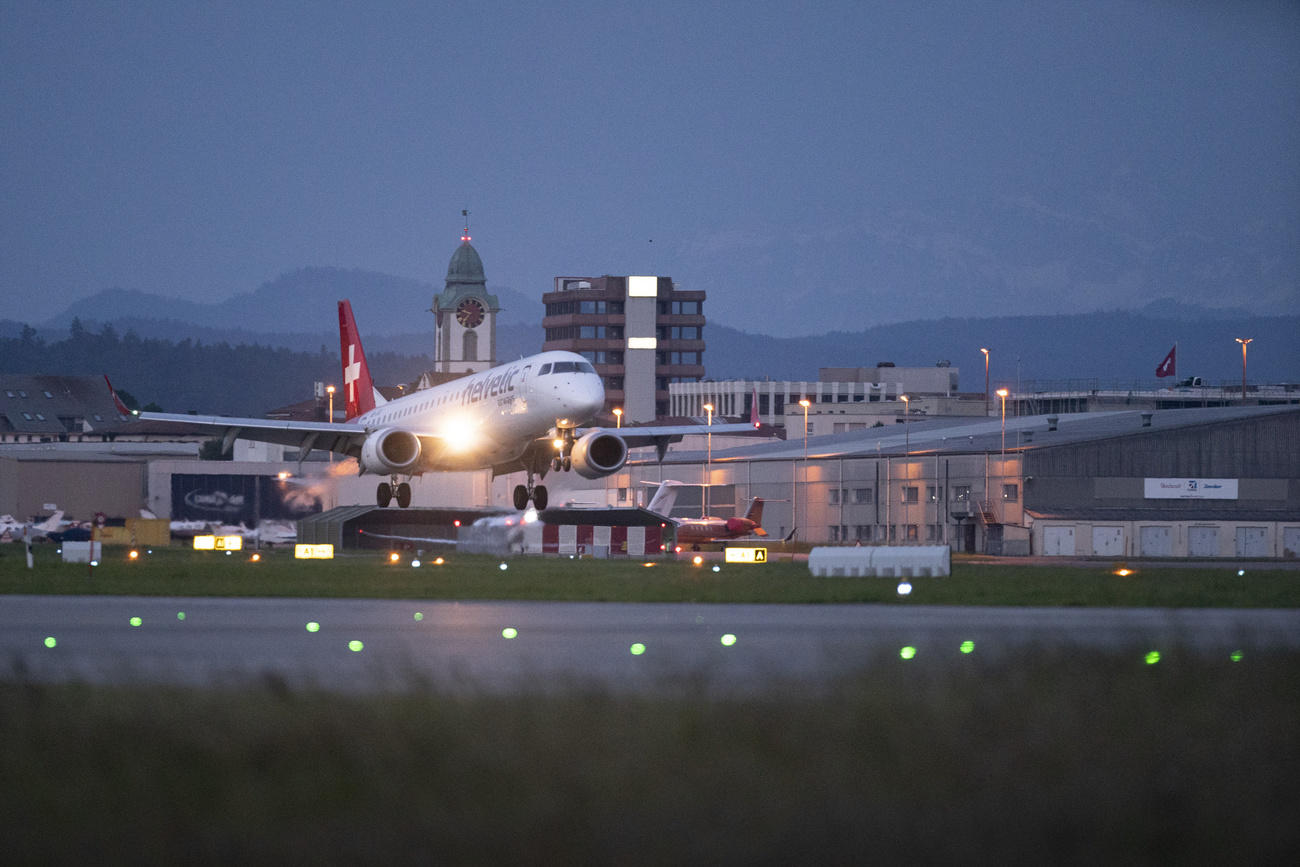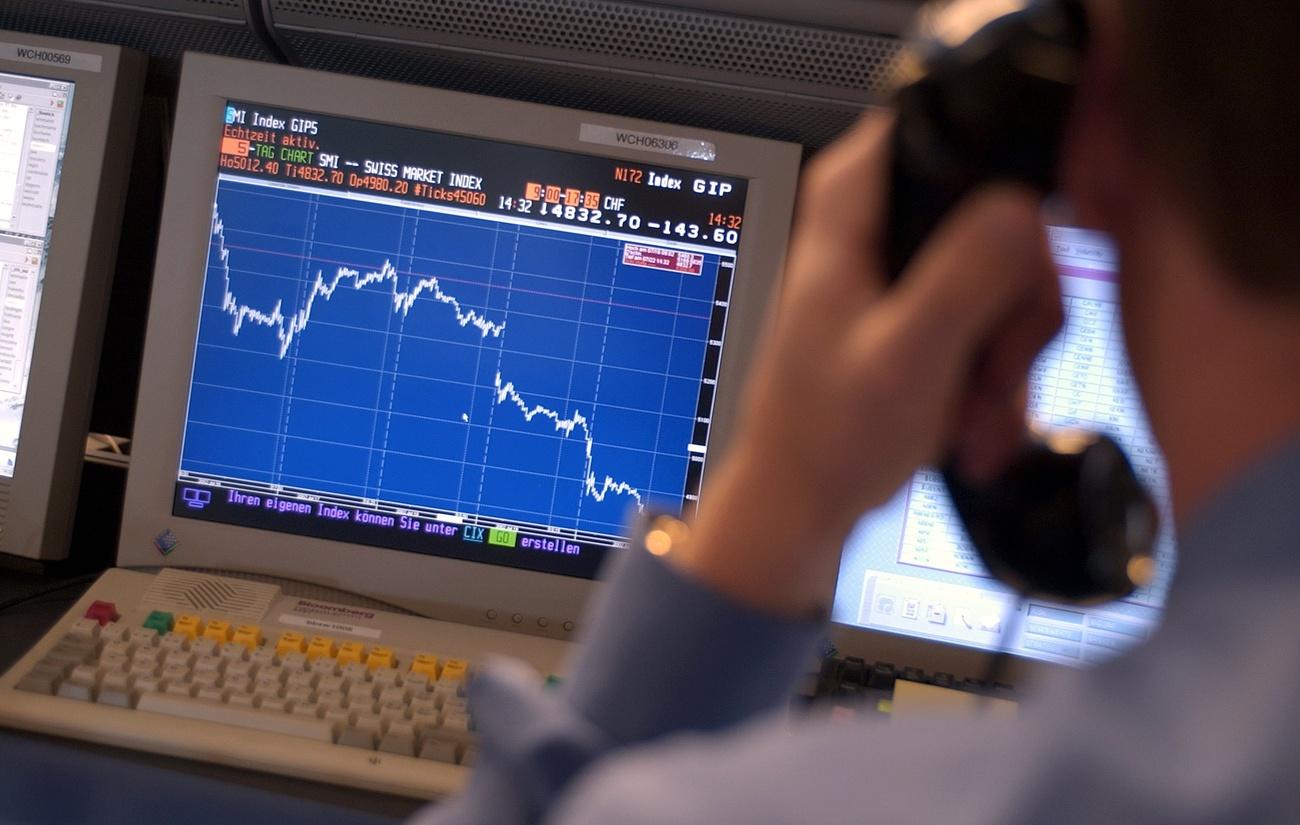Coronavirus decimates Swiss stocks

The Swiss Market Index (SMI) ended Thursday down 9.64% on 8,270 points, having broken the 10% mark just before the close of trading. There was red across the boardExternal link, with banks and insurance companies doing the most damage.
Credit Suisse finished the day down 16%, Swiss Re down 15.6%, Swiss Life down 14.8% and UBS down 13.2%.
A similarly large intraday loss was last seen in 2015, when the Swiss National Bank (SNB) scrapped a cap on the euro exchange rate.
The SMIExternal link, first published on July 1, 1988, did not exist during the biggest stock market crash of the post-war period on October 19, 1987, when speculation on interest rate hikes caused the Dow Jones Index on Wall Street to collapse by 23%.
The following is an overview of the SMI’s highest percentage losses since then:
The 1990s and 9/11
October 16, 1989: The SMI falls by 11%, following Wall Street, where financing difficulties in a company sale trigger a crash.
August 19, 1991: A coup against the then Soviet President Mikhail Gorbachev, which later failed, pushes the SMI down by a good 8%.
SMI
The Swiss Market Index (SMI) is Switzerland’s blue-chip stock market index and comprises 20 of the largest and most-liquid large- and mid-cap stocks of the Swiss Performance Index (SPI), a collection of all securities traded on the Zurich-based SIX Swiss Exchange from companies based in Switzerland.
October 28, 1997: In the wake of the Asian crisis, the SMI plummets by more than 10% during trading, closing 4.6% lower.
October 1, 1998: Fears of a conflagration in the banking sector following the collapse of a hedge fund and an escalation of the crises in Asia, Japan, Latin America and Russia push the SMI down by almost 6%.
September 11, 2001: Following the terrorist attacks in the US, the SMI falls by around 7%.
September 21, 2001: Ten days later, stock markets worldwide hit the lowest levels for several years. In the meantime, the SMI plummets by almost 8%. Investors are no longer only afraid of growing economic risks and the financial damage caused by terrorism in many sectors but also of a possible war.
Financial crises leave deep marks
January 21, 2008: Fears of a recession in the US push the SMI into negative territory by over 5%.
September 15, 2008: The SMI falls by 5.4% following the bankruptcy of investment bank Lehman Brothers. By the end of trading it recovers somewhat, closing 3.8 % lower.
October 8, 2008: In the wake of the financial crisis, the SMI loses up to 6.6%. Following a concerted round of interest rate cuts by the major central banks, share prices recover only slightly. The SMI closes down 5.5%.
October 24, 2008: Another crash on the Tokyo stock exchange pushes the SMI down by over 8% at its lowest.
China, interest rates and franc shock
January 15, 2015: The SNB lifts the minimum euro exchange rate. With an interim fall of 13.8%, the SMI experiences its biggest daily loss to date, falling from over 9,000 points the previous evening to below 8,000 points. It closes 8.7% lower. The following day it falls by a further 6%.
August 24, 2015: Fears of a significant economic slump in China depress the SMI by 7.3%. Speculation on a cash injection from the Chinese central bank slows the slide in the evening. The SMI ends the day down 3.7%.
June 24, 2016: After Britain votes to leave the EU the SMI nosedives by 6.8% and closes 3.4% lower.
February 24, 2020: A new coronavirus spreads to Europe. Fear of the consequences of the epidemic puts an end to the SMI’s soaring rise and it falls by 4%. Only shortly before the SMI had reached a record high of 11,270 points.
March 9, 2020: In addition to the general uncertainty caused by Covid-19, there is also an oil price war between Saudi Arabia and Russia. This pushes the SMI down by 7% or almost 700 points in the course of trading. Stock markets around the world collapse.
March 12, 2020: The stock markets are again in free fall due to the general uncertainty around the coronavirus. Neither an interest rate decision by the European Central Bank nor communicated measures to stabilise the economy calm the markets. The SMI falls by almost 10% in the course of trading, ending the day down 9.6%.

In compliance with the JTI standards
More: SWI swissinfo.ch certified by the Journalism Trust Initiative




















You can find an overview of ongoing debates with our journalists here . Please join us!
If you want to start a conversation about a topic raised in this article or want to report factual errors, email us at english@swissinfo.ch.